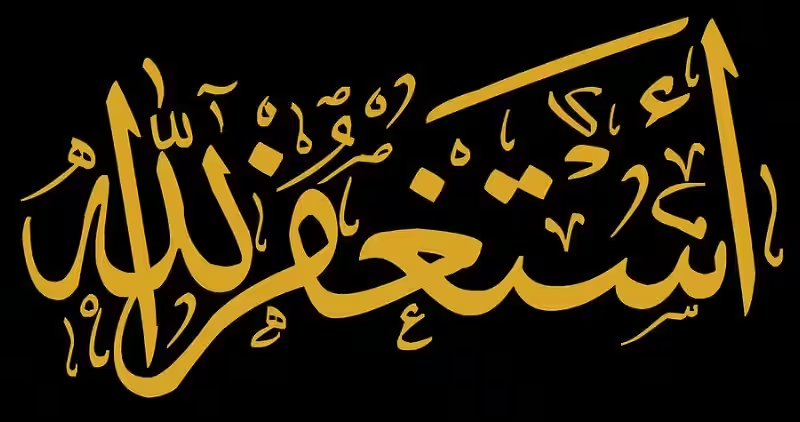
In the tapestry of human interaction, forgiveness weaves a thread of healing and reconciliation. Whether it’s a heartfelt apology for a minor misstep or a deep desire to mend a broken relationship, the words “forgive me” hold immense power. In Arabic, this sentiment is expressed with a nuanced range of phrases that capture different levels of formality and emotion.
Navigating the Nuances of “Forgive Me” in Arabic
Arabic, a language rich in cultural depth, offers a variety of ways to express “forgive me.” Each phrase carries its own weight and context, adding layers of meaning to this essential expression of remorse.
Formal Expressions of Regret
In formal settings, conveying sincerity and respect is paramount. Here are some phrases to use when addressing someone with whom you have a more formal relationship:
- سامحني (Sāmiḥnī): This is the most direct and common translation of “forgive me.” It carries a sense of humility and is well-suited for various situations.
- أرجو أن تسامحني (Arjū an tusāmiḥnī): This phrase expresses a deeper level of regret by conveying the hope that the other person will grant forgiveness. It translates to “I hope you will forgive me.”
Both phrases demonstrate a willingness to acknowledge wrongdoing and seek reconciliation. They are appropriate for situations where a formal tone is expected, such as when apologizing to an elder, a teacher, or a person in a position of authority.
Informal Expressions of Apology
When communicating with friends, family, or loved ones, a more casual approach is often preferred. These informal phrases convey a sense of closeness and understanding:
- عفواً (ʿafwan): This phrase, often translated as “excuse me” or “pardon me,” is a lighter apology suitable for minor offenses or unintentional mistakes.
- سامحني يا (Sāmiḥnī yā…): This expression is a casual way to say “forgive me” and is often used with close friends and family. You would follow “yā” with the person’s name, creating a personal and intimate tone.
These informal phrases reflect the comfort and familiarity of a close relationship, allowing for a more relaxed yet sincere apology.
Beyond Words: The Importance of Context and Culture
While the Arabic language provides a rich vocabulary for expressing forgiveness, the true essence of an apology lies in the context and cultural nuances.
The Power of Context
The specific phrase you choose will depend on the severity of the offense, your relationship with the person, and the overall situation. For example, a simple “عفواً” might suffice for a minor inconvenience, while a more formal “سامحني” might be necessary if you have deeply hurt someone.
Cultural Considerations
Arabic culture emphasizes respect, honor, and social harmony. When apologizing, it’s important to be mindful of these values. A sincere apology should include an explanation of your actions, demonstrating that you understand the impact of your behavior. It is also customary to express genuine regret and a willingness to make amends.
The Art of Forgiveness: A Path to Healing
Forgiveness is a powerful act of grace, offering both the giver and the receiver a chance to heal and move forward. In Arabic culture, forgiveness is deeply intertwined with the concept of ʿafw, which signifies a conscious decision to release resentment and embrace compassion.
The Healing Power of Forgiveness
Forgiving someone does not necessarily mean condoning their actions. It is a personal choice to release the pain and bitterness associated with the offense. By choosing to forgive, you free yourself from the shackles of anger and resentment, paving the way for emotional healing and growth.
The Importance of Seeking Forgiveness
Just as it is important to forgive others, so too is it essential to seek forgiveness when we have wronged someone. Offering a sincere apology with the phrase “سامحني” or one of its variations can mend broken relationships, restore trust, and build a foundation for a stronger future.
Embracing the Power of “Forgive Me”
In the journey of life, we all make mistakes. The ability to express regret, seek forgiveness, and offer grace is a testament to our human nature. Whether you’re speaking Arabic or any other language, the words “forgive me” hold the power to heal, reconcile, and pave the way for a more harmonious and compassionate world.
Frequently Asked Questions About “Forgive Me” in Arabic
What is the most common way to say “forgive me” in Arabic?
سامحني (Sāmiḥnī)
Is there a more formal way to say “forgive me” in Arabic?
أرجو أن تسامحني (Arjū an tusāmiḥnī)
What is a more informal way to say “forgive me” in Arabic?
سامحني يا (Sāmiḥnī yā…)
What does “عفواً (ʿafwan)” mean in Arabic?
It means “excuse me” or “pardon me.”
What is a good way to apologize in Arabic?
Offer a sincere apology, explain your actions, and use appropriate body language.








